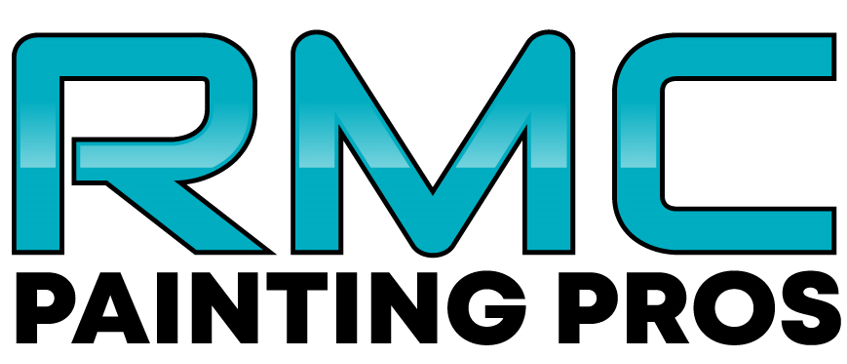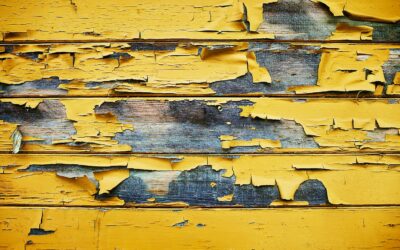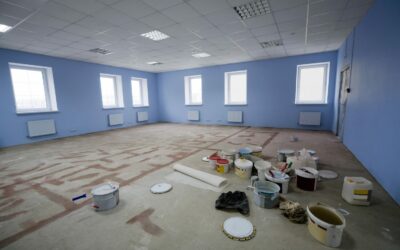
When it comes to home improvement, few changes can have as significant an impact as a fresh coat of paint. A well-painted interior can revitalize a room, transform its ambiance, and even increase the value of your property. However, achieving a high-quality paint job involves more than just picking up a brush and some paint. Investing in professional interior painting services can make a substantial difference in both the aesthetics and longevity of your home’s interior.
Here’s an in-depth look at why quality matters and why hiring a professional house painter is a worthwhile investment.
1. Expertise and Experience
Professional painters bring a depth of expertise and experience to every project, which ensures that the job is done right the first time.
Surface Preparation
Surface preparation is a crucial step in achieving a flawless paint job. Professionals understand that proper preparation is the key to long-lasting results. They meticulously clean and sand surfaces, fill in cracks and holes, and apply primer where necessary. This thorough preparation helps to ensure that the paint adheres properly, reduces the risk of peeling, and provides a smooth finish.
- Crack and Hole Repair: Professionals have the skills and materials to repair various surface imperfections. They use high-quality fillers and techniques to address issues such as nail holes, cracks, and dents, ensuring a uniform surface for painting.
- Sanding and Cleaning: Proper sanding and cleaning are essential to remove dust, dirt, and old paint residues. Professionals use the right grit sandpaper and cleaning solutions to prepare the surface, which helps the new paint adhere better and last longer.
Application Techniques
The application techniques used by professionals are critical in achieving a consistent and even finish. They are skilled in using brushes, rollers, and sprayers to apply paint smoothly and efficiently.
- Brush and Roller Techniques: Professionals know how to use brushes and rollers to achieve the desired texture and coverage. They apply paint in a systematic manner, avoiding streaks and ensuring an even coat.
- Spray Painting: For larger areas or specific finishes, professionals may use spray painting techniques. They have the expertise to handle spray equipment and achieve a smooth, uniform finish with minimal overspray.
2. High-Quality Materials and Tools
The quality of materials and tools used can significantly affect the outcome of a painting project. Professional painters have access to top-notch products that are not always available to the general public.
Paint Selection
Choosing the right paint is crucial for achieving the best results. Professionals can recommend high-quality paints that offer superior coverage, durability, and color accuracy.
- Paint Brands and Types: Professionals work with reputable paint brands and understand the differences between types of paint, such as latex, oil-based, and acrylic. They can help you select the right paint based on the room’s needs, such as moisture resistance or durability.
- Color Matching: Accurate color matching is essential for a cohesive look. Professionals use color-matching tools and techniques to ensure that the paint color complements your existing decor and meets your preferences.
Tools and Equipment
The tools and equipment used by professionals contribute to a high-quality finish. They invest in high-grade brushes, rollers, and sprayers that provide better coverage and precision.
- Brushes and Rollers: High-quality brushes and rollers are designed to hold and distribute paint evenly. Professionals use these tools to achieve a smooth, professional-looking finish without brush marks or roller lines.
- Sprayers: For a flawless and uniform application, professionals use spray equipment. They are skilled in adjusting the spray settings to achieve the desired finish and minimize overspray.
3. Time and Efficiency
One of the most significant advantages of hiring a professional painter is the time and efficiency they bring to the project. Painting can be a time-consuming task, especially if you lack experience.
Project Management
Professional painters manage every aspect of the project, from planning and preparation to execution and cleanup. This comprehensive approach ensures that the project runs smoothly and is completed within the agreed timeframe.
- Scheduling and Coordination: Professionals coordinate their schedule to complete the project on time. They handle all the logistics, including sourcing materials, scheduling work hours, and managing any unexpected issues that may arise.
- Efficiency: With their experience and efficient work practices, professionals can complete the job faster than an inexperienced DIYer. This reduces the overall disruption to your daily life and allows you to enjoy your newly painted space sooner.
Timely Completion
Professional painters adhere to strict timelines and work diligently to complete the project within the agreed-upon timeframe. This timely completion ensures that your home is ready for use as soon as possible.
- Avoiding Delays: Professionals plan their work carefully to avoid delays. They account for factors such as drying times, weather conditions, and potential obstacles, ensuring that the project progresses smoothly.
4. Quality and Consistency
The quality and consistency of a professional paint job are unmatched. Professionals have the skills and attention to detail necessary to deliver a superior finish.
Uniform Finish
Achieving a uniform finish requires precision and expertise. Professionals ensure that the paint is applied evenly, with no streaks, drips, or missed spots. This attention to detail results in a seamless and polished appearance.
- Color Consistency: Professionals ensure that the color is consistent across all surfaces. They mix paint thoroughly and use proper techniques to avoid color variations or uneven patches.
- Edge and Line Work: Professional painters are skilled in creating clean, crisp edges and lines. They use painter’s tape and other techniques to achieve sharp, well-defined borders.
Durability
High-quality painting is not only about appearance but also about durability. Professionals use techniques and materials that enhance the longevity of the paint job.
- Durable Paints: Professionals select paints with excellent durability and resistance to wear and tear. This means that your walls will remain looking fresh and vibrant for a longer period.
- Proper Application: By following best practices and using the right materials, professionals ensure that the paint adheres properly and withstands everyday use, reducing the need for frequent touch-ups.
5. Value Addition
Investing in professional interior painting can add substantial value to your home, both in terms of market value and overall appeal.
Increased Home Value
A well-painted interior enhances the overall appearance of your home, making it more attractive to potential buyers or renters. A fresh, professionally done paint job can contribute to a higher resale value.
- Market Appeal: Homes with professionally painted interiors often stand out in the real estate market. A clean, modern look can attract more interest from buyers and potentially lead to a quicker sale.
- Investment Return: Investing in professional painting can yield a good return on investment. The cost of hiring professionals is often outweighed by the increase in property value and the enhanced appeal of your home.
Enhanced Appeal
A professionally painted interior creates a welcoming and aesthetically pleasing environment. The right colors and finishes can enhance the mood and functionality of each room.
- Cohesive Design: Professionals can help you choose colors and finishes that create a cohesive and harmonious design. This enhances the overall aesthetic of your home and reflects your personal style.
- Improved Ambiance: Freshly painted walls can transform the ambiance of a room, making it feel more spacious, bright, and inviting.
6. Safety and Protection
Painting involves the use of chemicals and working at heights, which can pose safety risks. Professional painters prioritize safety to protect both themselves and your property.
Safety Practices
Professional painters adhere to strict safety protocols to ensure a safe working environment. They use protective gear, proper ventilation, and follow safety guidelines to minimize risks.
- Protective Gear: Professionals wear safety gear such as gloves, goggles, and masks to protect themselves from paint fumes and chemicals.
- Ventilation: Proper ventilation is essential to ensure that paint fumes are safely dispersed. Professionals use fans and open windows to maintain good air quality during the painting process.
Property Protection
To prevent damage to your property, professionals take measures to protect your furniture, flooring, and other belongings.
- Covering and Masking: Professionals use drop cloths, plastic sheeting, and painter’s tape to cover and protect surfaces that should not be painted. This prevents accidental splatters and drips.
- Cleanup: After completing the job, professionals thoroughly clean up the work area. They remove any protective coverings, dispose of waste materials properly, and leave your space in pristine condition.
7. Long-Term Savings
While hiring a professional painter may involve a higher initial cost, it can lead to long-term savings. A high-quality paint job reduces the need for frequent maintenance and repairs.
Durability
Professional painting techniques and materials contribute to a more durable finish. This means that the paint job will last longer, reducing the need for touch-ups and repaints.
- Reduced Maintenance: A well-applied paint job is less likely to peel, crack, or fade. This reduces the frequency of maintenance and touch-ups, saving you money in the long run.
- Cost-Effective Investment: Investing in quality materials and professional services ensures that you get a better return on your investment. The durability and longevity of the paint job make it a cost-effective choice.
Preventive Maintenance
By addressing underlying issues and using high-quality products, professionals help prevent problems that could lead to costly repairs.
- Issue Prevention: Professional painters identify and address potential issues before applying the paint. This helps prevent problems such as mold growth or water damage that could affect the paint job.
- Long-Term Performance: High-quality paints and application techniques contribute to the long-term performance of the paint job, reducing the need for frequent touch-ups or repairs.
Conclusion
Investing in professional interior painting is more than just a financial decision; it’s an investment in the quality, durability, and aesthetic appeal of your home. From the expertise and experience of skilled painters to the use of high-quality materials and tools, the benefits of professional painting are clear. Not only does it enhance the appearance of your space, but it also adds value, ensures long-lasting results, and provides peace of mind.
By choosing to hire professionals, you are ensuring that your painting project is completed to the highest standards. Their knowledge, efficiency, and attention to detail can make all the difference in achieving a stunning, high-quality finish that you’ll enjoy for years to come. So, when it’s time to refresh your home’s interior, consider the long-term benefits of investing in professional painting services.
Read Other Blog Posts
5 Signs It’s Time to Repaint Your Home: Don’t Ignore These Red Flags
Your home is more than just a...
Choosing Affordable Expert Paint Services That Don’t Compromise Quality
The quest for affordable yet...
Reasons Why Professional Painting Services are Vital for Commercial Properties
The façade of a commercial...
The Dos and Don’ts of Choosing Paint Colors for Your Home
Selecting paint colors for...
House Budgeting Brilliance: A Guide to Estimating Interior Painting Costs
Painting your home's interior...
The Painters Color Clock: How Often Should You Get Your Walls Painted?
The walls of our homes serve...






